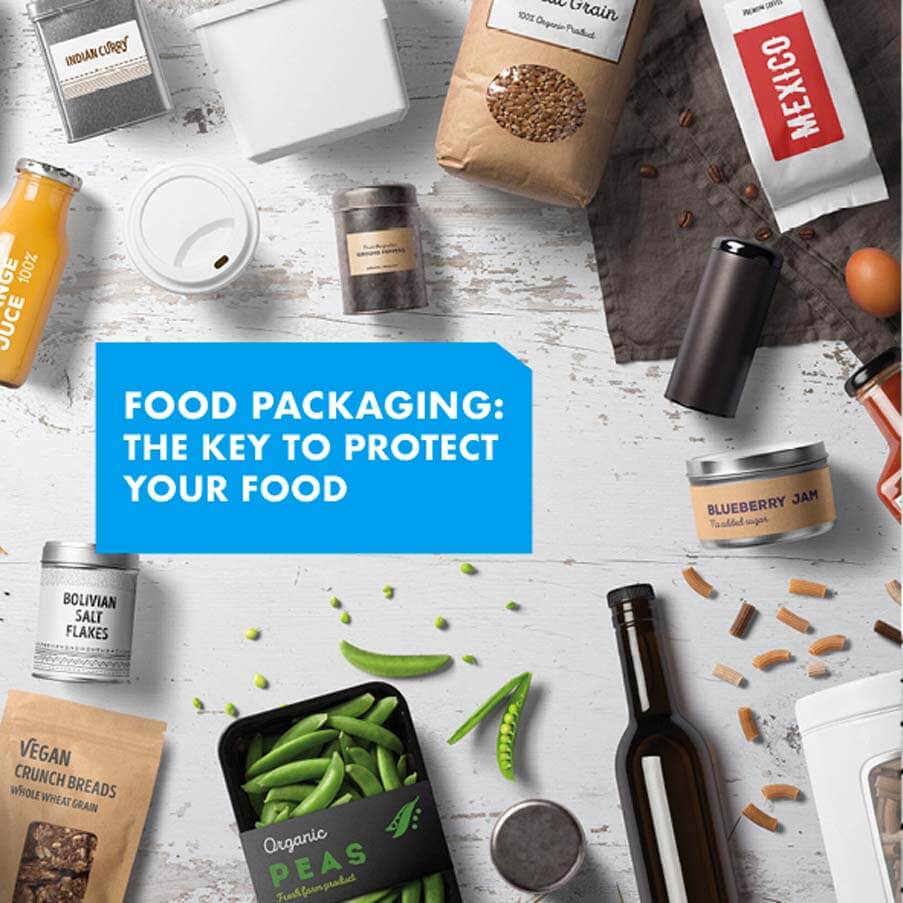
Food Packaging: The Key to Protect Your Food
Look around the grocery stores and supermarkets – you will find that every food product has its own type of packaging. When you stand in front of the shelves in a supermarket, food packaging also attracts your attention right?, and it plays an important role in shaping your food choice behavior. For customers, food packaging is a direct source to obtain food-related information such as the food category, brand, manufacturer, and expiration date, which form the basis of food decision-making.
But, food packaging is more than that. Let’s find out the importance of food packaging in this article!
Why Food Packaging is Important?
Food packaging is defined as enclosing food to protect it from tampering or contamination from physical, chemical, and biological sources, with active packaging being the most common packaging system used for preserving food products. After food packaging is removed, the shelf life of a food product is greatly reduced. Food packaging also used to allow for easy transport of goods, protect the integrity of food products, because not all food can be bought fresh off the producer’s or vendor’s shelves.
The right packaging also will significantly increases the shelf life of the food product. Poor and faculty packaging leads to shorter shelf life that, in turn, causes food health problems. That is why the right packaging integrity should be ensured to prevent the food’s exposure to air completely. Thus, the right packaging is key to preserve the food safely for a longer time period.
What is Food Packaging Materials?
Various packaging materials protect food from different types of exposure – sunlight, gases, and moisture. Food packaging uses a variety of different materials. The types of material used in your food packaging will depend on your preferences and the food products that you’re storing. The most used materials in the food industry are plastics, glass, cardboard, aluminum, jute, cloth, glass, metals and wood and its derivatives.
A packaging material made of glass and metal protects food from pathogens and chemicals. Biological packaging materials include paper, cardboard and cushioning materials, which prevent food from being dislodged and getting crushed during packing, transport, and shelving.
Today’s packaging industry is also focusing on sustainable packaging, through reducing and recycling packaging materials and processes. This has been triggered on account of government regulations, consumer pressure, retailer pressure and cost control.
Intersted in knowing more about food packaging?
Let’s join SGU’s Food Technology study program. You will learn about every aspect of the food processing industry, from the knowledge about food material characteristics to food packaging and storage technology.
SGU Food Technology also provides the opportunity to join a fast-growing food industry. A unique combination of theoretical knowledge and hands-on experiences gained during two internships, in Indonesia and Germany, provide our graduates with appropriate skills in science and technology, together with creative and innovative flair.
Lulusan Teknologi Pangan SGU memiliki banyak peluang karir di setiap sektor di lebih dari 300 bisnis yang berhubungan dengan makanan dan makanan, termasuk (namun tidak terbatas pada) perusahaan produk makanan, industri bahan, dan perusahaan pemasok mesin dan peralatan yang berhubungan dengan makanan. Selain itu, mereka memiliki prospek sebagai konsultan, peneliti, analis, dan pengusaha.
SGU Food Technology offers 2 curricula:
- Single Degree
- Double Degree at Albstadt-Sigmaringen University or Fachhochschule Südwestfalen
Download our curriculum by clicking the button at the end of this article.
What are you waiting for, study Food Technology at SGU. Contact our consultant to find out more!
Tentang SGU
SWISS GERMAN UNIVERSITY (SGU) is an international university in Indonesia, was established in 2000 as a joint effort between Indonesia, Germany, Switzerland, and Austria. We are the pioneer in offering international curricula in Indonesia. Qualified students can graduate with a Double Degree from Indonesia and Germany, which SGU provides in cooperation with partner universities; surely a valuable tool for your future careers. Ever since its establishment, SGU has been dedicated to delivering quality education in line with international standards and aims to develop skilled professionals who meet the demands of the industry. In order to achieve its objectives, SGU offers quality-oriented learning through 12 Bachelor’s Degree Programs and 4 Master’s Degree Programs ranging from Engineering, Information Technology, and Business to Life Sciences and Social Sciences. Furthermore, with small class sizes, and with English as the medium of instruction, you can look forward to pursuing your tertiary education and degree with full confidence.
Curriculum Single Degree Curriculum Double Degree Back
